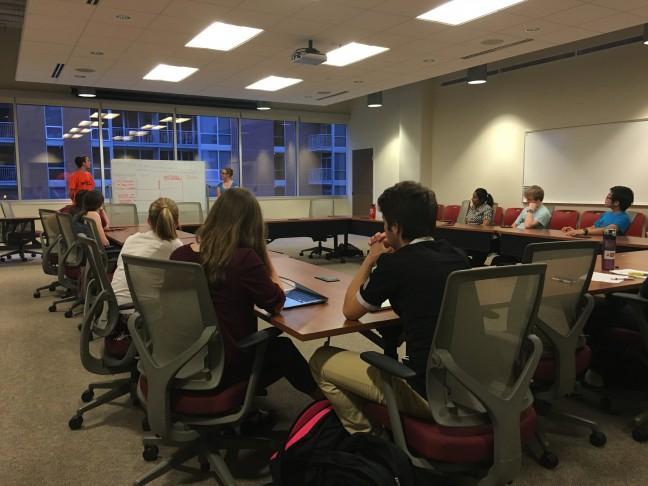The Associated Students of Madison Legislative Affairs Committee met Monday to discuss making University of Wisconsin a food stamp-friendly campus.
Members Billy Welsh and Brooke Nelson presented a list of tactics to make campus a place where the community can freely use food stamps and other members gave feedback.
Most committee members agreed that food stamp friendliness was the most pressing issue. According to the Food and Nutrition Service, people who meet qualifications such as working more than 20 hours a week and attending school, are eligible to receive aid from the Supplemental Nutrition Assistance Program.
“This is a fantastic way to address the inequalities that we are facing on campus and I think this would open doors for students,” Gina Woodlawn, a committee member, said.
Welsh and Nelson said they have discovered that food insecurity affects many students on campus, but UW facilities currently do not support SNAP as a form of payment. They listed people they plan to target in this campaign, including Vice Chancellor for Finance and Administration Michael Lehman and Housing Director Jeff Novak.
In smaller groups, members of the committee came up with tactics to get potential opponents of the campaign to listen to their ideas, including setting up information tables in dining areas around campus and creating a social media campaign. One member proposed that students stage a one-day boycott of one dining facility to garner the administration’s attention.
The initiative began when the committee voted several meetings ago to back student Brooke Evans, who is spearheading the project and looking to the committee to help her with a grassroots campaign. Welsh said the goal is to raise awareness.
“We are still in the early stages,” Welsh said. “But it is our duty as Badgers to be accepting of all of our fellow students and realize that this is a problem students have to face every day.”
Legislative Affairs Chair Carmen Gosèy said it is becoming unfeasible for students with lower socioeconomic status to come to UW.
The meeting also briefly touched on students’ role in influencing the state budget for 2017-19, where tuition could potentially go up by $10,000 for out-of-state students.













